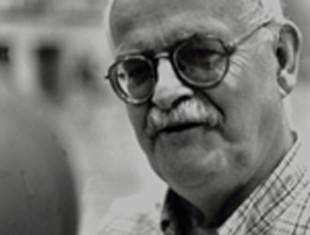TERRY MOSHER
You know it drives me absolutely nuts how big-money has sabotaged our democracy. I don’t have much time left on this Earth and things like I heard in the latest Republican Debate Tuesday in Milwaukee has me hoping I get taken by our good Lord before we – the middle class and poor – get crushed by the weight of these people who have surrendered their principles in pursuit of the golden ring – the White House.
How people can stand up before millions watching on television and lie in the hope you don’t understand what they are saying and vote for them is not only amazing but the worse of human decency. They all should be locked up and the key thrown away. Just because they are a pretty face or are so smooth they can talk a hungry lion out of the delicious meal lying in front of it doesn’t mean they deserve your vote. If you vote on that basis, you deserve what you will get if they reach the White House. I sometimes under my breath wish that Donald Trump wins the election and takes Sarah Palin as his vice president. Then, and only then, will you finally understand how you will have been fed lies and how you have been duped into voting for a smooth talker who is chained to big-money and doesn’t do anything without the approval of that big-money. And, trust me, big-money does not have your best interest at heart. They will crush you like a twig in the mouth of that hungry lion.
The Citizens United decision by the Supremes is the worst decision ever hoisted upon America. It guaranteed that our democracy was to be stolen, replaced by an oligarchy that ruthlessly in good time will undermine everything good that the average Joe and Mary American stands for – freedom being the prime target.
If you had listened closely Tuesday night, you would have noticed most of the candidates on stage slipped in the mention of Dodd-Frank, the law passed by Congress and signed into law in July of 2010 that is essential to the effort to reform Wall Street and provide consumer protection in the wake of the Great Recession of 2008 precipitated by the run-away wickedness and profit building among big banks and mortgage firms at the expense of the average Joe and Mary in America.
Big-money wanted to hear from their candidates that they would overturn Dodd-Frank to ensure they would follow their marching orders if elected. And many of the candidates managed to signal their agreement with that by mentioning they would do just that.
But that’s enough of me. Here is a story first reported on the Huffington Post about this: Read and weep:
On Tuesday night, one Republican presidential hopeful after another lined up to offer coded oaths of fealty to Wall Street donors, pledging to empower the nation’s biggest banks to wreak havoc-for-profit on the American economy.
They were rhetorically deft, sending signals that Washington bank lobbyists surely recognized, but which were almost certainly lost on the overwhelming majority of Americans who don’t regularly monitor House Financial Services Committee hearings.
Marco Rubio, Jeb Bush, Ted Cruz, Carly Fiorina, Chris Christie and Rick Santorum all issued calls to repeal, dismantle, hamstring or perform political acts of torture upon Dodd-Frank — the financial reform law designed to curb the big bank abuses that spawned the worst recession since the Great Depression. Ben Carson may have intended to join them, but was unable to make a coherent point beyond citations of the American revolution, “entrepreneurial risk-taking” and 10-cent increases in the price of soap.
Dodd-Frank has three basic functions. It creates new, tougher rules targeting the biggest banks, including restrictions on risky trading and requirements that the mega-banks at the core of the crisis hold more capital against potential losses. It established a new consumer agency to protect households against predations, including subprime lending. And it created new rules reining in risky trades of derivatives — the complex contracts traded in the dark that turned subprime loans into a national disaster.
Wall Street lobbyists have been pressuring Congress to undo the law ever since it was passed in the summer of 2010. But to hear the Republicans on stage at the debate in Milwaukee, Dodd-Frank wasn’t a crackdown on the bad actors from the financial crisis — it was a positively un-American assault on underdogs everywhere.
“It’s suffocating small business,” New Jersey Gov. Chris Christie said.
“Dodd-Frank is it’s a great example of how socialism starts,” said Carly Fiorina, who has never held public office but was once ranked by Portfolio magazine as the 19th-worst American CEO of all time.
“The big banks, they have an army of lawyers,” Sen. Marco Rubio (R-Fla.) said. “They can deal with all these things. The small banks … they can’t deal with all these regulations. … This is an outrage. We need to repeal Dodd-Frank.”
A compelling case from Rubio — except the tough rules under Dodd-Frank specifically target big banks. Small banks are explicitly carved out from them. And the definition of a “community bank” is exceptionally generous. Any bank with less than $10 billion in total assets is off the hook, nevermind the details of its loan portfolio or lending terms.
Former Florida Gov. Jeb Bush — who presided over a massive housing bubble in his state that fueled the national disaster — gave a rambling discussion appearing to call for higher capital requirements to break up big banks. But then he said this, which is completely false:
“What we ought to do is raise the capital requirements so banks aren’t too big to fail,” Bush said. “Dodd-Frank has actually done the opposite, totally the opposite.”
Dodd-Frank has higher capital standards for giant banks than for community banks. The signal was clear. Bush wants to get rid of Dodd-Frank, even if he talks like big banks are a real problem.
Sen. Ted Cruz (R-Texas) stole the show for pure, unbridled financial irrationality. He called for a return to the Gold Standard — a policy that even hardline conservative economist Milton Friedman faults as a key driver of the Great Depression — and heralded the economic stewardship of President Calvin Coolidge, who fed a Wall Street frenzy that eventually resulted in the 1929 stock market crash.
“The biggest lie in all of Washington and in all of politics is that Republicans are the party of the rich,” said Cruz, a millionaire whose wife works at Goldman Sachs. “The truth is, the rich do great with big government. They get in bed with big government. The big banks get bigger and bigger and bigger under Dodd-Frank, and community banks are going out of business.”
Small banks did, in fact, have a rough go at it from 2008 to 2010, as the collapsing economy wrecked their customers’ ability to pay back loans. In the years since, the declining number of community banks has been driven by mergers — capitalist transactions in which a smaller business accepts a large sum of money to be acquired by a larger business.
For pure paranoia, however, no one on stage could top Fiorina, who called Dodd-Frank “the classic of crony capitalism.”
“We’ve created something called the Consumer Financial Protection Bureau, a vast bureaucracy with no congressional oversight that’s digging through hundreds of millions of your credit records to detect fraud,” Fiorina said. “This is how socialism starts, ladies and gentlemen.”
Yeah, no. The CFPB — the brainchild of Sen. Elizabeth Warren (D-Mass.) — has to make annual written reports to Congress detailing its activities. The bureau’s officials testify before a (hostile Republican) Congress all the time. It gets access to the same lending data that every other bank regulator gets — including the Federal Reserve, the Federal Deposit Insurance Corporation and the Office of the Comptroller of the Currency. Banks are generally pretty cool with the other regulators. The CFPB, by contrast, has forced shady lenders to return over $10 billion to ripped-off customers since its inception. Its enemies include Wall Street banks, payday lenders, and yes, many so-called “community banks” that have scammed their customers. Funny that Fiorina is only incensed about the one regulatory agency that banks don’t like and which has a record of aiding consumers.
Dodd-Frank has its shortcomings. The big banks are, in fact, too big. But repealing the law won’t fix that. If GOP presidential hopefuls really wanted to protect the public from financial excess, they’d talk about breaking up the banks, or banning federal subsidies for risky derivatives trades. Instead, they shriek “socialism!” and “small business!” and hope nobody notices the bank lobby’s satisfaction.
Sorry to foist this story upon you, but if you are in better physical shape than I am and intend to live much longer than me then you should pay special attention to these guys in the ensuing months as the presidential campaign winds down toward November of 2016 with the vote. You probably will have to live under one of these guys and suffer as a result, so be careful as you move into the new year and don’t be fooled by good looks and a smooth tongue. Do your research and fight back against big-money and retake your country so that all of you will have a better chance to live the American Dream.
Don’t succumb to the American Nightmare and allow big-money to win.
Okay, I’m going to take my anger and see if I can release it with a hard workout at the YMCA where respect and good fellowship lives.
Be well pal.
Be careful out there.
Have a great day.
You are loved.



